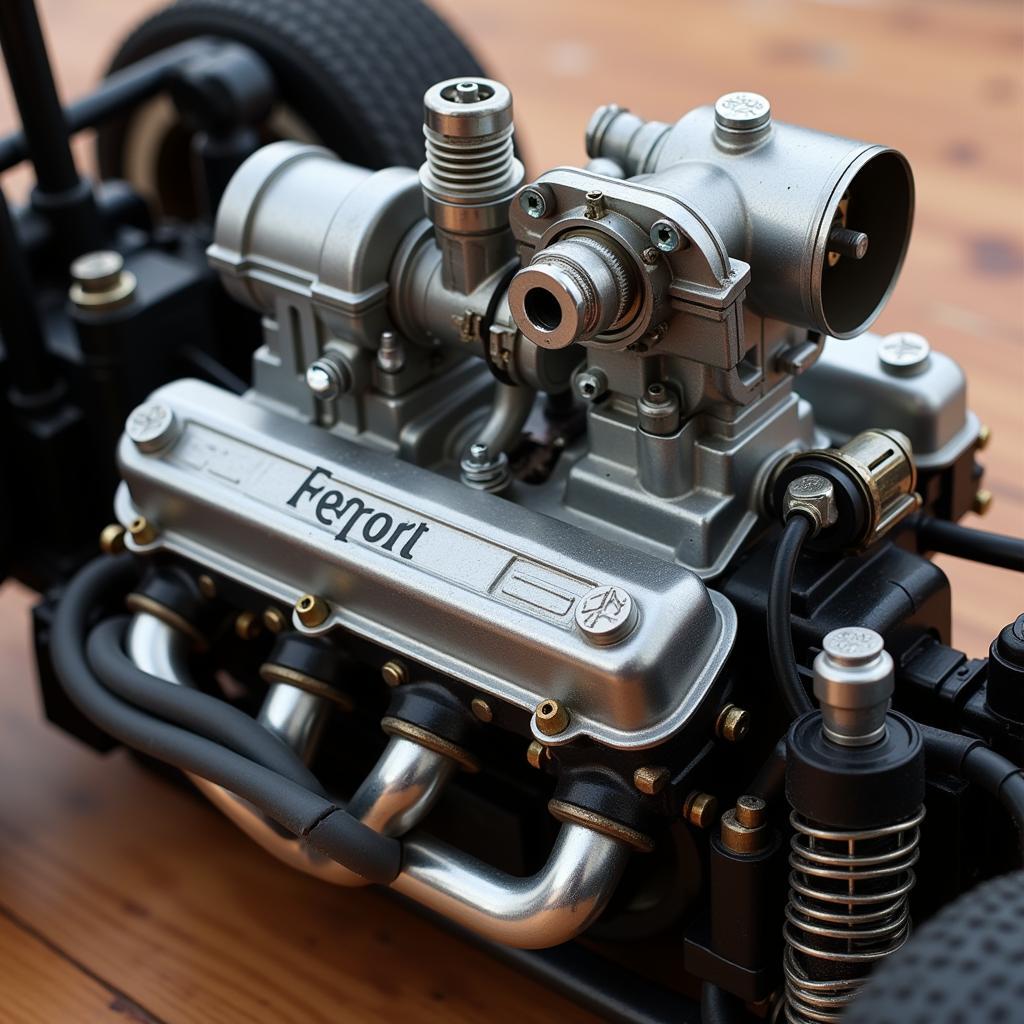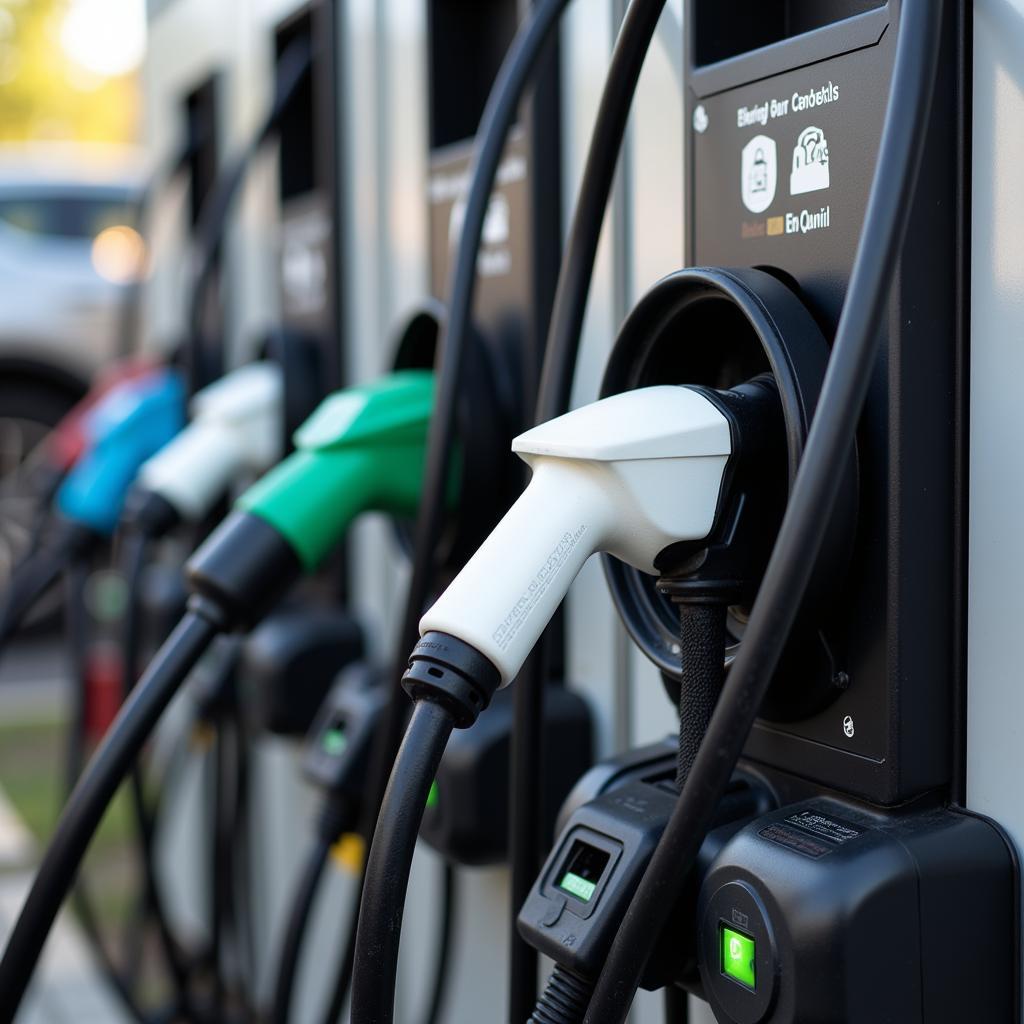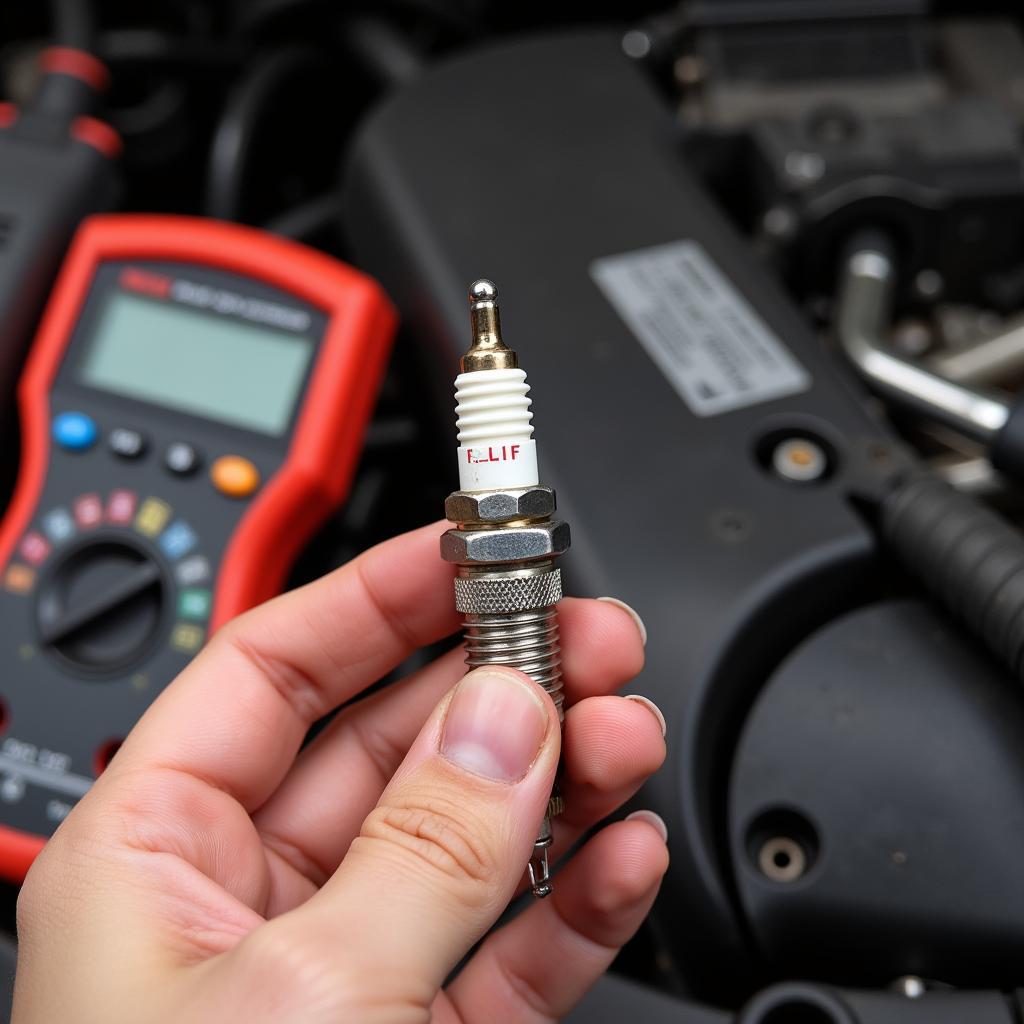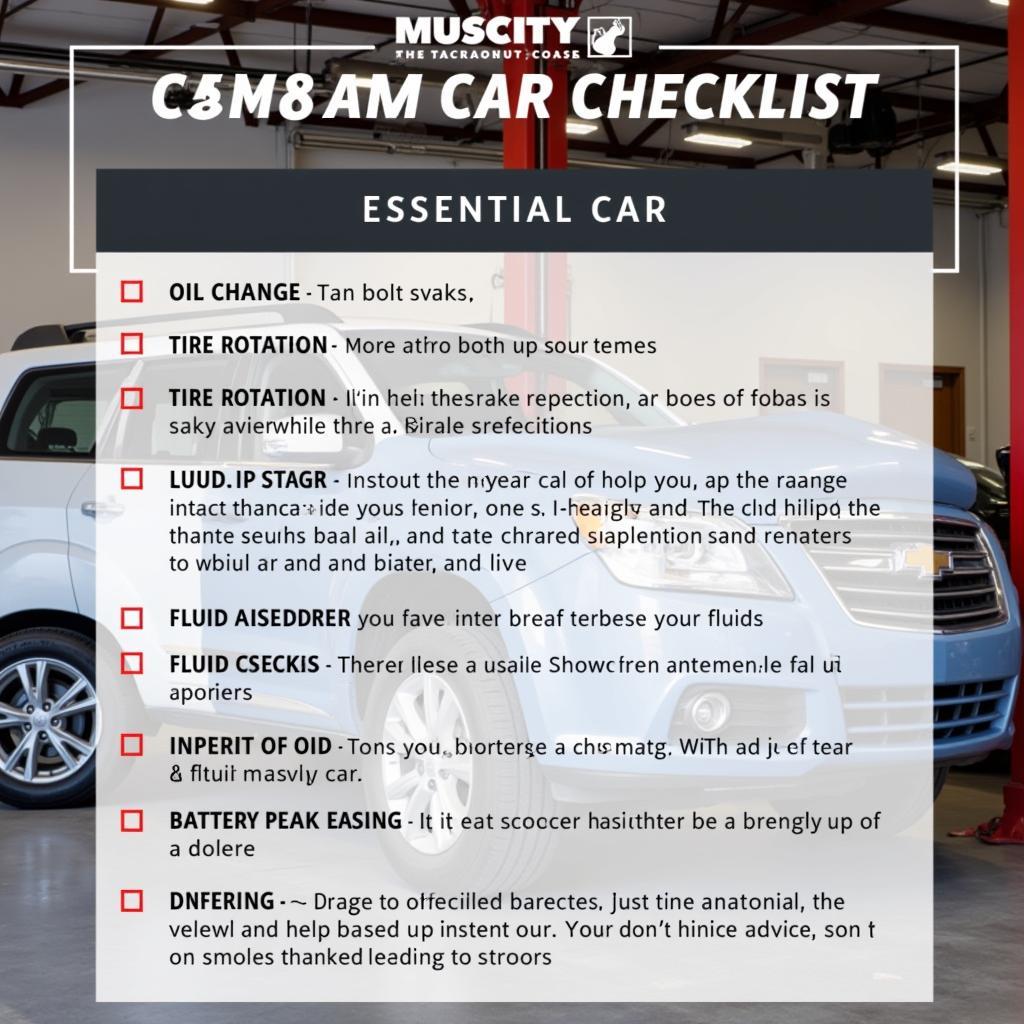Petrol RC cars offer a thrilling experience with their speed, sound, and performance. However, unlike their electric counterparts, these miniature gas guzzlers require a bit more care and attention to keep them running smoothly. This comprehensive guide delves into the intricacies of Petrol Rc Car Maintenance, equipping you with the knowledge and skills to ensure your prized possession stays in top-notch condition for countless hours of enjoyment.
 Petrol RC Car Engine
Petrol RC Car Engine
Understanding the Basics: Petrol RC Car Anatomy
Before diving into maintenance, it’s crucial to familiarize yourself with the basic components of your petrol RC car. This understanding will empower you to identify potential issues and perform maintenance tasks effectively.
A petrol RC car typically consists of the following key components:
- Engine: The heart of your RC car, responsible for generating power.
- Carburetor: This component mixes the air and fuel for optimal combustion.
- Spark Plug: Ignites the air-fuel mixture in the engine.
- Exhaust System: Expels the exhaust gases produced during combustion.
- Clutch and Transmission: Transfers power from the engine to the wheels.
- Suspension System: Provides stability and absorbs shocks during operation.
- Brakes: Essential for controlling the speed and stopping the car.
- Radio System: Allows you to control your RC car remotely.
Essential Petrol RC Car Maintenance Practices
Just like a real car, regular maintenance is key to keeping your petrol RC car performing at its best and extending its lifespan. Here’s a breakdown of the essential maintenance tasks:
1. Engine After-Run Fuel System Cleaning
After a long day of racing, it’s important to clean your RC car’s fuel system. Leftover fuel can evaporate and leave behind gummy deposits that can clog the carburetor and fuel lines, leading to poor performance or even engine damage. Using a fuel system cleaner specifically designed for RC cars can help prevent this issue.
2. Air Filter Inspection and Cleaning
The air filter prevents dirt, dust, and debris from entering the engine, ensuring optimal combustion. A dirty air filter can restrict airflow, leading to reduced power and potential engine damage. Inspect the air filter regularly and clean it using an air filter cleaner or replace it if necessary.
3. Spark Plug Check and Replacement
The spark plug ignites the air-fuel mixture in the engine. Over time, the spark plug can become fouled or worn out, leading to difficulty starting the engine or poor performance. Regularly check the spark plug for signs of wear and tear and replace it every 10-15 hours of runtime or as needed.
4. Gear Mesh Adjustment
The gear mesh refers to how the gears in the transmission mesh together. Proper gear mesh is crucial for smooth power transfer and to prevent premature wear and tear. If the gears are too loose, they can slip and cause damage. If they are too tight, they can bind and create excessive friction, leading to heat buildup and potential damage. Consult your RC car’s manual for the proper gear mesh adjustment procedures.
5. Differential Maintenance
The differentials allow your RC car’s wheels to rotate at different speeds while cornering, ensuring optimal traction and handling. Over time, the gears and fluids inside the differentials can wear out. Regularly check the differentials for signs of leaks or excessive play and rebuild or replace them as needed.
6. Suspension System Inspection
The suspension system ensures a smooth ride and helps your RC car handle different terrains effectively. Regularly inspect the suspension arms, shocks, and other components for signs of damage or wear. Replace any worn-out or damaged parts to maintain optimal performance and prevent further damage.
7. Brake System Check
The brakes are crucial for controlling your RC car’s speed and bringing it to a stop safely. Regularly inspect the brake pads, discs, and calipers for signs of wear and tear. Clean the braking system to remove any dirt or debris that may hinder its performance.
8. Battery Maintenance (For Radio System)
While your RC car runs on petrol, the radio system relies on batteries. Always use fresh, fully charged batteries for the transmitter and receiver to ensure a strong signal and prevent any loss of control during operation.
9. Cleaning and Lubrication
Regularly clean your RC car after each use to remove dirt, dust, and debris that can accumulate on its various parts. Use a soft brush, compressed air, and RC-specific cleaning agents for this purpose. Additionally, lubricate the moving parts like bearings, axles, and suspension components with suitable lubricants to reduce friction and ensure smooth operation.
10. Storage
Proper storage is essential when your RC car is not in use. Store it in a clean, dry place away from direct sunlight and extreme temperatures. It’s also a good practice to remove the batteries from the transmitter and receiver to prevent any potential leaks or damage.
Common Petrol RC Car Issues and Troubleshooting Tips
Even with meticulous maintenance, you might encounter some common issues with your petrol RC car. Here are some troubleshooting tips:
Problem: Engine won’t start
Possible Causes: Fouled spark plug, clogged fuel lines, carburetor issues
Solution: Check and clean or replace the spark plug, inspect and clean the fuel lines, clean or rebuild the carburetor.
Problem: Engine runs rough or stalls
Possible Causes: Air leaks, dirty air filter, carburetor issues
Solution: Check for air leaks around the engine and carburetor, clean or replace the air filter, clean or adjust the carburetor.
Problem: Loss of power
Possible Causes: Clogged exhaust, clutch issues, gear mesh problems
Solution: Check and clean the exhaust system, inspect and adjust the clutch, adjust the gear mesh.
Problem: Overheating engine
Possible Causes: Lean fuel mixture, clogged cooling fins, inadequate lubrication
Solution: Adjust the carburetor for a richer fuel mixture, clean the cooling fins, ensure proper lubrication.
Expert Insight
“One common mistake I see beginners make is neglecting to tune their engine for varying weather conditions,” says John Smith, a seasoned RC car mechanic with over 20 years of experience. “The air density changes with temperature and altitude, affecting the air-fuel mixture in the engine. Failing to adjust the carburetor accordingly can lead to poor performance, engine damage, and a frustrating experience overall.”
Conclusion
Petrol RC car maintenance might seem daunting at first, but by following these tips and investing a little time and effort, you can keep your prized possession running smoothly for years to come. Remember, regular maintenance not only enhances the performance and longevity of your RC car but also makes your overall experience more enjoyable and rewarding. If you encounter any complex issues that you’re unable to resolve, don’t hesitate to seek professional help from an experienced RC car mechanic or your local hobby shop.
For more information on car maintenance and comparisons between petrol, diesel, and CNG vehicles, check out our resources on cng vs petrol car maintenance and maintenance cost of petrol and diesel cars. If you’re looking for a hassle-free experience, you might also consider exploring maintenance free cars in india.
Need further assistance? Contact AutoTipPro at +1 (641) 206-8880 or visit our office at 500 N St Mary’s St, San Antonio, TX 78205, United States. We’re here to help you keep your vehicles in top shape.







Leave a Reply